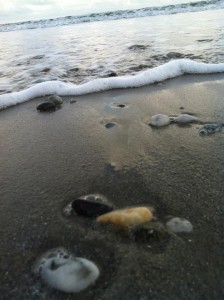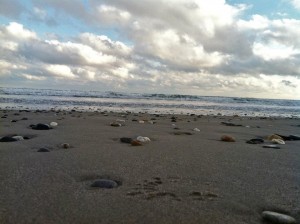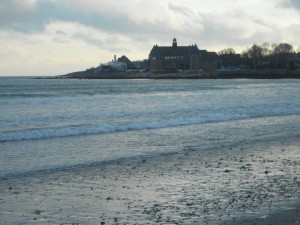(These are all personal photographs taken by me at Narragansett Beach)
I would like to use this week’s blogs post as an opportunity to offer insight as to why Henry David Thoreau’s collection of essays in “Cape Cod” may be difficult for us as readers to appreciate.
Let me begin by defining who “us” is. “Us” is the youthful sample of students who are enrolled in ENG 396 at The University Rhode Island; a school who’s very name represents THE OCEAN STATE. Weather you are an in-sate commuter, an out-of-state on-campus resident, or all that is between, the fact remains that we have easy and ample access to the oceanic scenery that Thoreau tries to capture for his readers. Some of us live within walking distance of the beach, while for others it is no more than an hour away. Regardless, it is pretty safe to assume that we have all experienced the ocean.
Perhaps it is so hard to appreciate Thoreau’s vivid descriptions, because we are so overexposed to the scenes he is depicting. Modern transportation, and technology allows us an opportunity that wasn’t afforded to inhabitants of Thoreau’s time. We can be transported great distances quickly, easily, and privately.
It is probable that many of Thoreau’s readers both past, and present, have never and will never see the ocean. As it is human nature to be curious of things you know not of, he may have an easier time captivating this type of audience, rather than “us”.
Another plausible explanation to our lack of interest is that we are not only overexposed to the scenery, but also underexposed to travel writing. After years of experience reading novels, I can connect and become interested in those that are not to my taste. I cannot say the same for Thoreau’s novel however, because I have little to no experience reading this type of text. Another part of human nature is showing preferential feelings towards that with which we are familiar, which is perhaps why most of us lean towards novels as opposed to travel writings.
Moving forward, I think it will be most useful for me as a reader to try and understand the original audience in which the text was intended, and set aside my own personal (and frequent) accounts with the ocean and shore.



